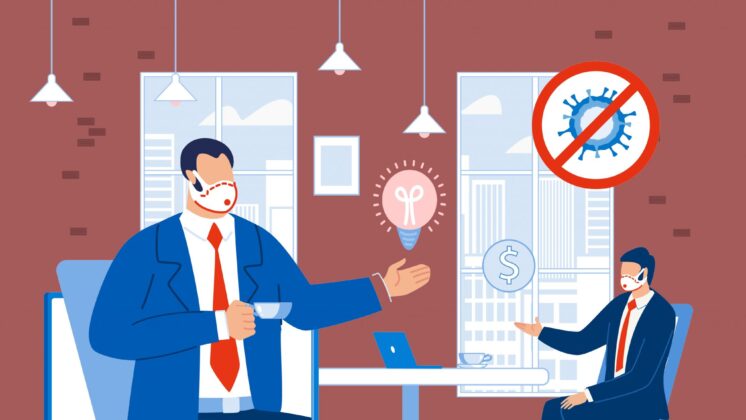In recent years, corporate culture has vaulted certain companies into the spotlight. From funky furniture and tasty snacks to exotic retreats and pets in the office, company perks have much of the workforce wondering what their company can do for them beyond salary and standard benefits.
But what happens when priorities shift from making the office fun to making the office safe—say, when a pandemic hits?
At its core, a company’s culture is a complex recipe of values, behaviors, and standards that holds employees together. In the best of times, culture helps align priorities and define targets. In the tougher times, it tests an organization’s identity.
IBM is a multinational corporation with over a century of history. No company gets that far without weathering a few storms. Vice President of Human Resources Christian Barrios shared how IBM Japan is faring against the trials of a global pandemic.
The key to IBM’s COVID-19 culture: agility.
How has COVID-19 impacted your corporate culture?
IBM began embracing remote working and other flexible working solutions many years ago. Yet we also value face-to-face interactions for collaboration. So even with those initiatives, most of our employees would come to the office on a regular basis.
COVID-19 made us prove our agility. We went from 90% office presence to less than 10% in a matter of days. We also learned to interact with our clients in a new way. Leveraging technology has allowed us to use this as an opportunity. All of a sudden, everyone was online. Virtual interaction allowed for IBM expertise in other countries to interact with clients in the local context. We can bring more diverse voices to the table as needed.
What percentage of your employees do you expect to work in the office going forward?
IBM is taking a phased and agile approach to returning to the workplace. While the infection rate is still high, we expect 10–15% of our employees to be at the office with all the precautions necessary to keep everyone safe. If the infection indicators start to improve, we may bring this up to 30%, but our goal is to remain mindful of social distancing and ensure everyone wears masks.
The COVID-19 situation is volatile—even in countries where the infections were under control, we sometimes see surges and second outbreaks which require agile adjustments to office occupancy.
How do you plan to balance necessary in-office work, safety measures, and motivation?
At IBM, we’re all about leveraging technology. WebEx, Slack, and Mural help us conduct virtual roundtables. All Hands, management meetings, and even family events help us keep a sense of connection, motivate our employees, and ensure a healthy, open feedback channel with all our team members.
As for the work that must be done in the office, we provide masks, hand sanitation stations, social distancing guidelines, and spaces to ensure that our employees feel at ease and safe while working on site.
What are you doing to encourage workers’ psychological health?
Our executive team has been very involved in ensuring the right communication channels are open and available to all our IBMers during the pandemic. We have an active Crisis Management Team that runs a Slack forum where we handle questions and requests from employees. We also conduct global IBM polls where we ask employees all over the world important questions:
How are you feeling?
Are you getting the support you need to do your job effectively?
Are you getting support from your management team?
The respondents get to comment openly on what they need. This has been an important source of feedback to guide our actions as a management team. We’re able to address concerns before they become serious issues.
What are your biggest challenges moving forward?
The biggest challenge is perhaps not knowing where and when it all ends. When do we go back to “normal”? How much longer do we need to practice social distancing? People are naturally anxious and in search of some sense of clarity. Learning to deal with the ambiguity without losing focus on the work that has to be done is an important challenge.
IBM values a growth mindset and resilience. This pandemic is putting both to the test.
What will be the office experience in the post-pandemic world? Will everyone continue working from home? Everyone is thinking about this, but it’s still too early to know. One thing is for sure, though: as we move forward, agility, flexibility, and innovation will be more important to our corporate culture than ever.



